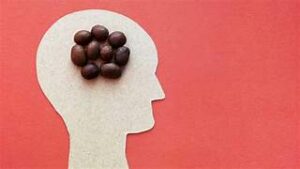Do you have trouble functioning without your morning cup of coffee? If so, you’re not alone. Caffeine is one of the most popular drugs in the world, and for good reason – it makes us feel more alert and awake. But what happens when someone with OCD consumes caffeine? Does it make their symptoms worse, or does it help them to function better? In this blog post, we will explore the link between caffeine and OCD, and discuss how this popular drug affects people with this disorder.
Contents
What Is Caffeine?

Caffeine is a stimulant drug that is found in coffee, tea, energy drinks, and chocolate. It works by blocking the action of a chemical called adenosine in the brain. Adenosine is responsible for making us feel sleepy, so when it’s blocked by caffeine, we feel more awake and alert. Caffeine also increases the release of other neurotransmitters like dopamine and norepinephrine, which can further improve our mood and focus. The most commonly available sources of caffeine are Energy drinks
- Cola (Coke, any brand of cola)
- Espresso coffee
- Instant coffee
- Black tea
- White tea and green tea
Working Of Caffeine

Caffeine is a stimulant drug that is found in coffee, tea, energy drinks, and chocolate. It works by blocking the action of a chemical called adenosine in the brain. Adenosine is responsible for making us feel sleepy, so when it’s blocked by caffeine, we feel more awake and alert. Caffeine also increases the release of other neurotransmitters like dopamine and norepinephrine, which can further improve our mood and focus.
How Does Caffeine Affect OCD?
There is no definitive answer to this question, as everyone experiences OCD differently and reacts to caffeine differently. There is currently no research that specifically looks at how caffeine affects OCD. However, there is some evidence to suggest that caffeine may help to improve focus and concentration in people with ADHD, which is a disorder that is often comorbid with OCD. At high doses, caffeine can also cause anxiety and jitteriness.
Some people find that their OCD symptoms are worse when they consume caffeine, while others find that it helps them to focus and concentrate on their compulsions. There is some evidence to suggest that the effects of caffeine on OCD vary depending on the type of OCD someone has. For example, one study found that people with checking compulsions were more likely to experience an increase in their symptoms after consuming caffeine, while those with washing and ordering compulsions did not show any change.
It’s important to remember that everyone is different and there is no one-size-fits-all answer when it comes to how caffeine affects OCD. If you are concerned about how caffeine is affecting your OCD, it’s best to speak to a mental health professional who can help you to manage your symptoms.
Side Effects of Caffeine

Caffeine is generally safe to consume in moderation, but there are some potential side effects that you should be aware of. These include:
- Increase in anxiety levels
- Difficulty sleeping
- Nervousness
- Headaches
- Dizziness
For those with OCD, excess intake of caffeine can further impact the nervous system.
- Caffeine can enter the barrier between your brain and bloodstream, which affects the healthy functioning of neurotransmitters.
- It disrupts the healthy stimulation of GABA (gamma-aminobutyric acid) transmitters, which are primarily responsible for reducing anxiety.
- An increase in anxiety can trigger OCD compulsions and exacerbate symptoms.
- Caffeine also affects the production of serotonin, which further impacts mood and can lead to depression.
- Depression is often co-morbid with OCD, so it’s important to be aware of how caffeine might affect your mental health if you consume it regularly.
Managing The Effects Of Caffeine On OCD

If you find that caffeine affects your OCD symptoms, there are a few things you can do to manage the effects:
- Cut back on caffeinated beverages. If you typically drink coffee or tea every day, try reducing your intake to one cup per day, or every other day.
- Avoid consuming caffeine late in the day. Caffeine has a half-life of about five hours, which means it can stay in your system for up to ten hours. So if you’re sensitive to its effects, it’s best to avoid drinking caffeinated beverages after lunchtime.
- Choose decaffeinated options when possible. There are many varieties of herbal teas and coffees that are naturally decaffeinated. You can also find decaf versions of your favorite beverages at most coffee shops.
- Experiment with different brands and types of coffee. Some people find that they react differently to certain types of coffee. For example, you may be more sensitive to the effects of caffeine if you drink dark roast coffee, while someone else may be more affected by drinking decaf coffee.
It’s important to experiment and find what works best for you. Everyone reacts differently to caffeine, so there is no one-size-fits-all solution.
Conclusion
Caffeine is a popular drug that can have both positive and negative effects on people with OCD. If you’re concerned about how caffeine is affecting your disorder, it’s best to speak to a mental health professional who can help you manage your symptoms. Remember that everyone reacts differently to caffeine, so it’s important to listen to your body and see what works for you.
If you are looking for affordable Online OCD Counseling MantraCare can help: Book a trial OCD therapy session


